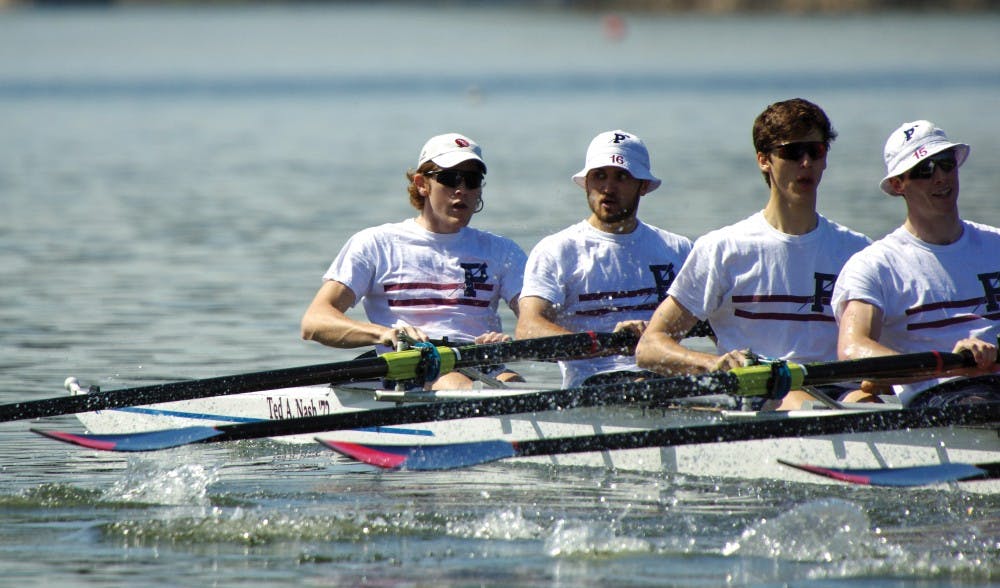With a history stretching back one and a half centuries, competitive rowing constitutes one of Penn’s oldest traditions. A familiar image: the bow of a boat calmly — almost effortlessly — cutting through the water surface as it advances on the river.
An image serene but deceiving: To succeed as a rower takes nothing short of a triumph of the physical and mental self.
The men and women of Penn rowing are keenly aware of this. During winter break, when most students simmer down between the semesters, the rowers are hard at work. To these oarsmen and oarswomen, it’s hardly a break — more like a stepping stone.
“It’s cold outside, the river is frozen up, it’s dark and we’re working really hard,” Greg Myhr, coach of the heavyweight crew, said. “Winter training makes or breaks your season.”
Positioned after the preparatory fall season, winter training is a pivotal period of the rowing year. It is the period when the coaches take their rowers back inside, a time to perfect their individual and collective oarsmanship for the spring season.
Now in early February, Myhr is making sure his rowers are not wasting any time. For the heavyweights, winter training is like any other competitive season, but rather than facing other crews, they compete against each other. By using an indoor rowing machine, or ergometer — erg for short — they compete to see who can produce the best results.
“It is definitely man against man,” Myhr said. “We rank the list by number.”
For the women’s crew, coach Mike Lane is overseeing the preparations for the spring. He understands the challenge winter training presents for the rowers.
“There are always going to be highs and lows, both from a physical and an emotional standpoint,” he said.
The winter, with its cold temperatures, poses a particular challenge to rowers in the form of potential illness.
“We definitely want to try to prevent sickness as much as possible,” Lane continued, arguing that it is one of the biggest challenges for the rowers during this season.
For many rowers, however, there was also a bit of light in the midst of all the darkness of winter. This year, a training trip to Florida provided an opportunity for on-water practice, team bonding and — importantly — a mental and motivational boost.
“From a mental refreshment state, I think the camp was really, really beneficial,” Lane said, describing how the winter break trip constituted a vital training opportunity removed from otherwise constant academic pressure.
Lane also notes how the trip gave the crew a chance to fine tune their technical side, aside from the opportunity for raw practice.
“Making adjustments with our stroke and getting the eight to row as one unit — that was the best part of our training,” he concluded.
Myhr found the trip rewarding, as well.
“We got more miles in this year than we have in the past six years,” Myhr noted.
Much like Lane, he found the trip as important for its motivational qualities.
Colin Farrell, coach of the lightweight crew, noted how winter training back in Philadephia differs from regular training. Unable to practice on the water — which is the usual method of choice — rowers must resort to a combination of using machines, tanks and weightlifting — all indoors.
“Every day is valuable,” Farrell said.
“The work and energy levels are high,” he continued.
Content with the lightweights’ progress so far, both he and the rowers are eager to get back out on the Schuylkill, now only weeks away.
Indeed, spring is pressingly close. All of the crews are looking to start competitive racing next month.



